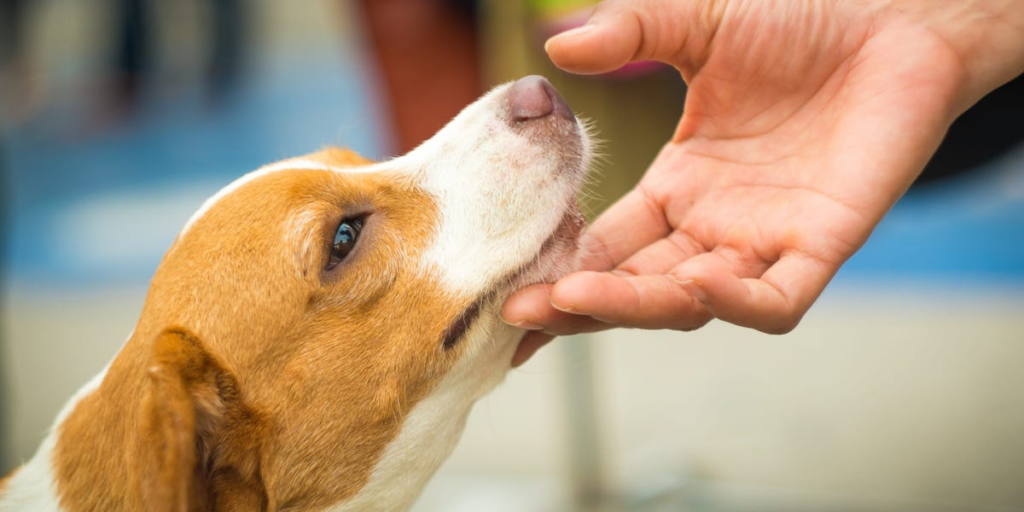Take notice if a dog seems to be watching your every move — that could mean that they don’t trust you or that they feel uncomfortable around you.
“Dogs that are worried about a person may stare at them or visually track their movement from a distance,” Karen Sueda, a board-certified veterinary behaviorist at VCA West Los Angeles Animal Hospital, told Insider.
Sometimes a dog that doesn’t want to be around you might track you carefully — other times, they might purposely ignore you.
Insider spoke with Wag! advisory board member and dog behaviorist Robert Cabral, who said you should watch and see if a dog isn’t making eye contact with you or seems to move away from you every time you try to get close.
Cabral said if a dog isn’t your biggest fan, they will not meet your gaze and will back away “because dogs will most often choose flight as opposed to fight.”
Remember, a dog that doesn’t like you might actually just be kind of scared of you — and this fear can manifest itself in physical ways.
“If the dog is fearful, he may cower or crouch, pull back his ears, tuck his tail, hide, or tremble,” Sueda told Insider.
A dog who isn’t thrilled with you isn’t going to really stick around when you come by. Aside from avoiding eye contact and ignoring you, they may just straight up leave the room.
As Cabral told Insider, “Dogs will more often disengage than opt for destructive behavior.”
Anyone who is familiar with dogs knows how much they appreciate a good treat. So, if a dog is avoiding a special snack just to avoid being near you, that’s a sign they may not feel comfortable in your presence.
Sueda said a dog might also show the whites of their eyes when they’re avoiding a treat that’s being offered by someone they may not trust.
Cabral said to look out for a dog that’s hunching their back or curving its back upwards, as this can be a sign the dog is about to pounce or that they are afraid.
He also said to pay attention to a dog’s hackles, the hairs along a dog’s shoulders and spine that rise when an animal is alarmed or angry.
“Their hair standing up along their back could mean they’re scared or uncomfortable,” he told Insider.
Like humans, dogs can display nervous ticks that come out when they’re around someone who makes them a bit uncomfortable.
“Some dogs may exhibit behaviors such as licking their lips or yawning when they aren’t tried,” said Sueda. “These are the equivalent of a person who plays with their hair or bounces their leg when they are nervous.”
A dog’s body language is very telling, so if the animal begins to stiffen up they may be in the presence of someone or something they don’t like.
Sueda told Insider that, in some cases, “they may stiffen and stare at a person they perceive as threatening.”
Keep in mind that it’s not common for a dog to be aggressive toward you just because they are not your biggest fan — they are typically only aggressive if they feel threatened.
“If a dog is biting you, they are acting out of self-preservation, a basic drive that almost all animals have,” explained Cabral.
Generally, a dog is only going to get aggressive if they feel you’ve done something that pressures them into having to protect themselves or their territory.
The good news is that many dogs will warm up to you even if they’re not showing much interest in you at the moment, said Cabral.
“The best way to get a dog to like you is to not try too hard to make the dog like you,” Cabral told Insider.
“Give the dog space and time and make them feel safe. Be normal and go about your day-to-day,” he added, explaining that you’ll probably find that the dog warms up on their own once you start to ignore them a bit.
In addition, Sueda said you’ll want to avoid sudden or unexpected movements that might frighten or threaten a dog and you should “associate your presence with things the dog enjoys, such as tossing treats or a toy.”
But all in all, sometimes a dog might not like you that much no matter what you do.
“You’re not best friends with everyone, so you shouldn’t expect your dog to love everyone they meet. It’s normal for dogs to have different levels of enthusiasm for different people,” said Sueda.
Read next
Jump to

